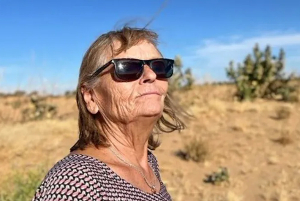‘‘Every day may not be good… but there is something good in everyday” – Alice Morse Earle.
The above quote seems to resonate with our current situation in the fight against COVID-19, and its impact on public transport.
Globally, the coronavirus (COVID-19) pandemic, which has claimed thousands of lives, has been a curse on us. However, in Ghana, we can make something ‘good’ out of this curse.
Various governments across the globe have been putting drastic measures in place to tackle this pandemic which continues to take lives, as the search for a cure still remains elusive. Whereas most of these measures are arguably a novelty in themselves, some of them according to observers, should have rather been part of our daily activities. One of such initiatives is that which requires that commercial vehicles reduce the number of passengers allowed, in line with social distancing.
Moment after the announcement of the measures by H.E President Akufo-Addo in a televised address to the entire nation, I jumped to the defence of these trotro and taxi operators. The reason is that, in my opinion, such a directive was going to impact negatively on their business.
Per the directives, trotro buses which previously used to load three passengers on a seat are mandated to now accept only two passengers on the same seat.
Those that previously allowed four passengers on a role are now mandated to accept only three passengers, while taxi cabs that used to accept four passengers are to load only two passengers at the back seat and, a passenger in the front seat. All these were done to enforce ‘social distancing’ of at least two meters from a person.
As l envisaged, transport operators, such as the Ghana Private Road Transport Union (GPRTU) and the Ghana Road Transport Coordinating Council (GRTCC) initially resisted the directives. The National Chairman of GPRTU, Mr. Kwame Kumah, is quoted as saying, “we can’t reduce the number of passengers on commercial vehicles simply because of the outbreak of coronavirus”.
It can be argued that, at the time Mr Kumah held this position, sensitization on the COVID-19 pandemic had not reached his office.
As an essential worker who is permitted to work during the lockdown, I decided to experience the situation in public transport. To my utter dismay, the era where passengers were parked like ‘sardines’ was absent. I repeated my curiosity on three occasions, and the situation was the same.
It appears to me that the president’s directives on commercial vehicles are being adhered to. The era where conductors (driver’s mates) stretched their hands over passengers with accompanying stench are gone. The era where passengers on the first seat endured ‘compulsory face-to-face’ contact with conductors seems to be over.
I believe that this current situation is a good thing for commuters using public transport. It is hygienic, and also comes with great comfort. In all the occasions l patronized the services of commercial transport, l reached my destination still looking fresh. This is in direct contrast to pre-COVID-19, where passengers had to endure discomforting times before reaching their destinations.
I am very sure that most commuters will not hesitate to support if l propose that the current situation be maintained on commercial transport post-COVID-19.
It will surely come as a great relief for commuters if Parliament amend the Road Traffic Act 2004 (Act 683) to make it mandatory for taxis to pick three passengers instead of four, and for trotro to pick two and three on a seat instead of three and four.
I am optimistic that, some health benefits will equally be achieved should it be standardized.
It can be argued that the new directive might lead to a loss in revenue to the transport operators, and could eventually call for upward adjustment of transport fares to make up for the losses. I concede that such a call will be justifiable. Given the benefits, l am sure that commuters will welcome such upward adjustment.
Throughout history, societies seem to learn the hard way. In the midst of adversity, great ideas, innovations, and decisions come on board to open new and better ways of life. It is possible that, if we are able to manage the current directive on commercial transport well, it might turn out to be one of the welcomed innovations that would have been adapted from our bad days under COVID-19. When that happens, we can all look back and perhaps agree, that, although COVID-19 visited hell on us, we were able to adopt something good out of the bad experiences for our future.
When that happens, we will be right to conclude that, indeed, every day may not be good…but there is something good in every day.
Opinions of Wednesday, 15 April 2020
Columnist: Kweku Antwi-Otoo
Braa Timoo writes: Let’s maintain fewer passengers in our trotros & taxis after coronavirus
Entertainment














